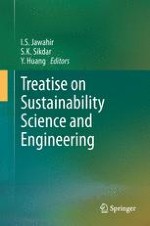2013 | OriginalPaper | Buchkapitel
Liquid Biofuels: We Lose More Than We Win
verfasst von : Henrik Wenzel, Karsten Hedegaard, Kathrine Thyø, Guido Reinhardt
Erschienen in: Treatise on Sustainability Science and Engineering
Verlag: Springer Netherlands
Aktivieren Sie unsere intelligente Suche, um passende Fachinhalte oder Patente zu finden.
Wählen Sie Textabschnitte aus um mit Künstlicher Intelligenz passenden Patente zu finden. powered by
Markieren Sie Textabschnitte, um KI-gestützt weitere passende Inhalte zu finden. powered by
